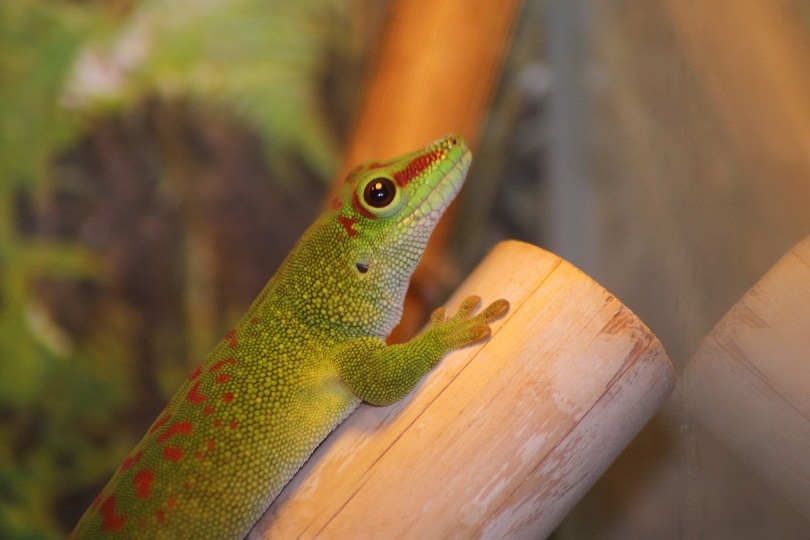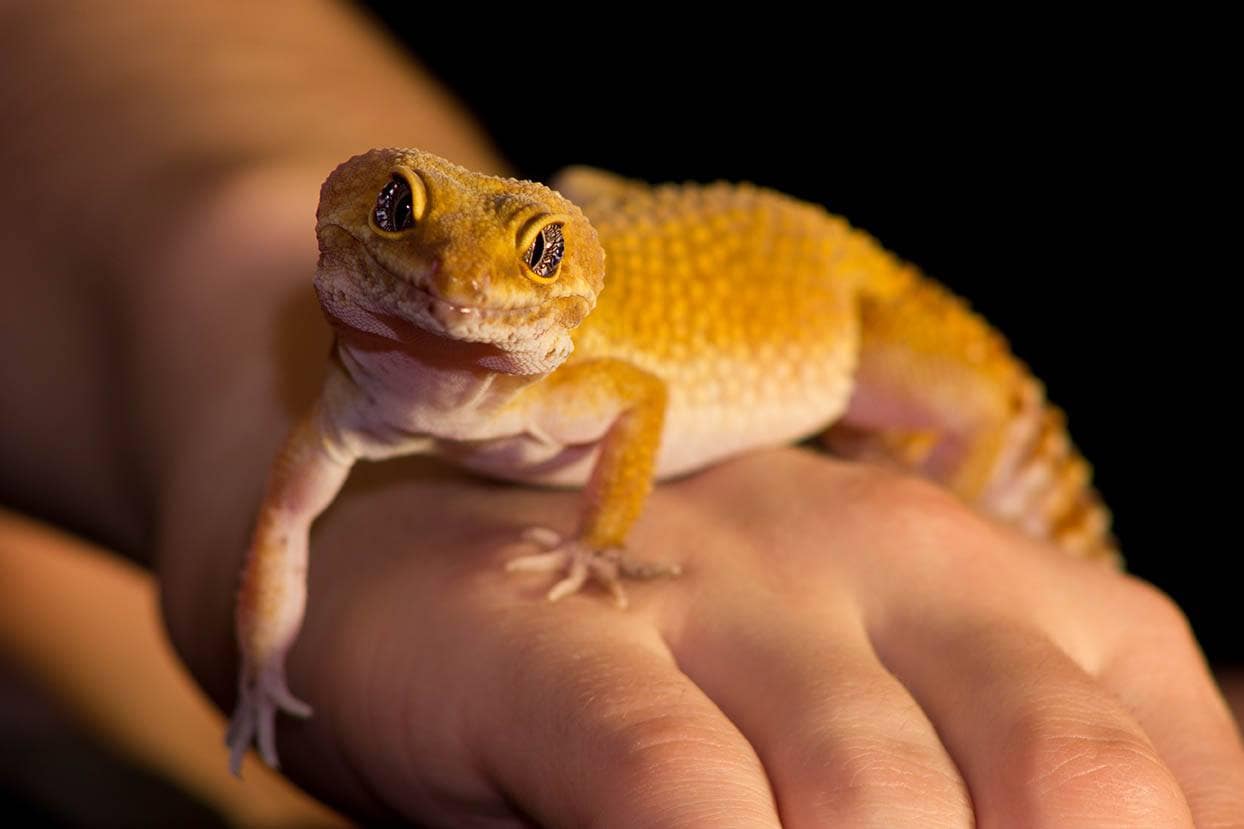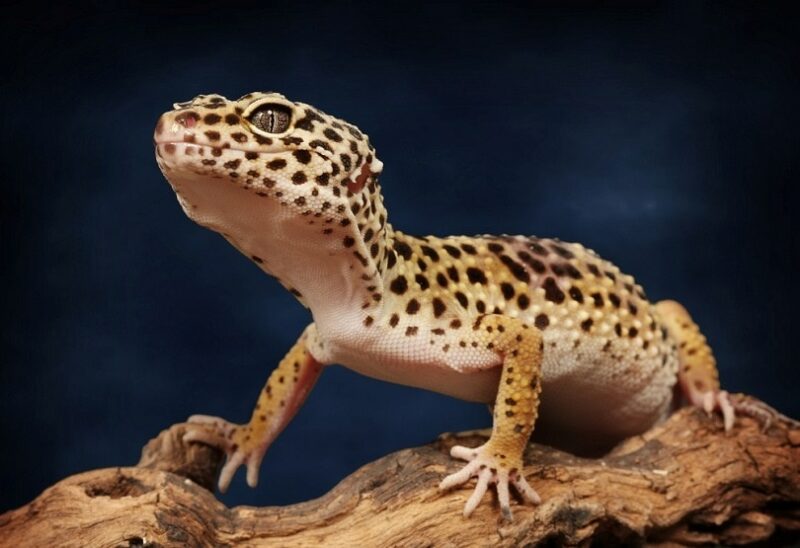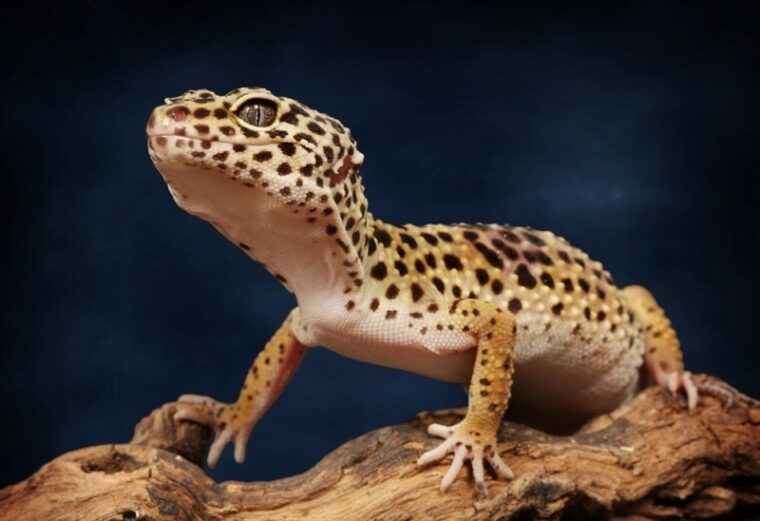
It only takes one look at the leopard gecko’s adorable face to see why it has captured the hearts of reptile lovers around the world! In the United States, these cute, colorful reptiles are commonly kept as pets, primarily due to their striking beauty, spunky personalities, and robust health. They can live up to 25 -30 years if their owner takes good care of them.
And speaking of care, do leopard geckos need regular bathing? It depends. For one thing, geckos absorb water through their skin. So, bathing keeps them well hydrated. If you provide them with a small, shallow container of lukewarm water in their cage, they will happily immerse themselves in it. However, when shedding, your gecko may need to be bathed to get rid of all its tiny bits of skin. So, to help your leopard gecko shed, follow these simple steps:
1. Check If Your Gecko Needs a Bath
If your gecko is shedding and isn’t going to its water container on its own, you can give it a bath to speed up the process.
However, be aware that leopard geckos are susceptible to dysecdysis1, which is difficulty shedding skin on the toes. Only a veterinarian can make the diagnosis after examining your gecko. Then, he will be able to tell you the cause of this common problem in reptiles and give your pet the appropriate treatment.

2. Wash Your Hands Before and After Handling Your Gecko
Like all reptiles, leopard geckos can carry Salmonella2. This bacterium rarely causes health problems in lizards, but it can be transmitted to humans. In addition, you can transmit germs and bacteria to your gecko, hence the importance of washing your hands thoroughly before and after each handling. A good cleaning with lukewarm water and mild soap should be sufficient.
3. Soak Your Gecko In a Shallow Container

4. Do Not Rub Your Gecko
If the retained skin does not come off with repeated soakings, do not try to pull or brush the skin. This could damage your reptile’s skin, muscle, or even the underlying bone.
Have your pet checked out by a reptile-savvy veterinarian if his molt lasts longer than 2 weeks, as he could be suffering from a skin infection or another illness.
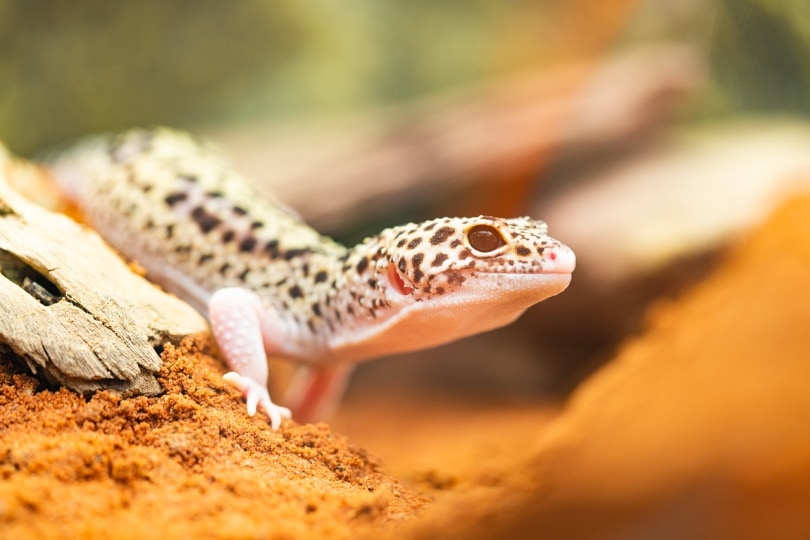
5. Repeat Soaks if Necessary
Do not bathe your gecko more than 2 to 3 times a week. However, remember that if your gecko goes to its water container on its own and manages to shed its skin without any problems, you don’t need to give him any additional baths.
 Final Thoughts
Final Thoughts
Leopard geckos are gorgeous, hardy, (relatively) easy-to-care-for, and fun-loving reptiles. No wonder they make such great pets. However, as with any other species of reptile, it is your responsibility to educate yourself on all the care your pet needs to thrive. In conclusion, even though your leopard gecko sometimes needs to soak to get rid of its skin, make sure you don’t bathe it too often and be on the lookout for possible health issues.
See Also:
- How Much Do Leopard Geckos Cost At PetSmart? (Price Guide)
- How Do Geckos Stick to Walls? What Science Says
Featured Image Credit: Reinhold-Leitner, Shutterstock



